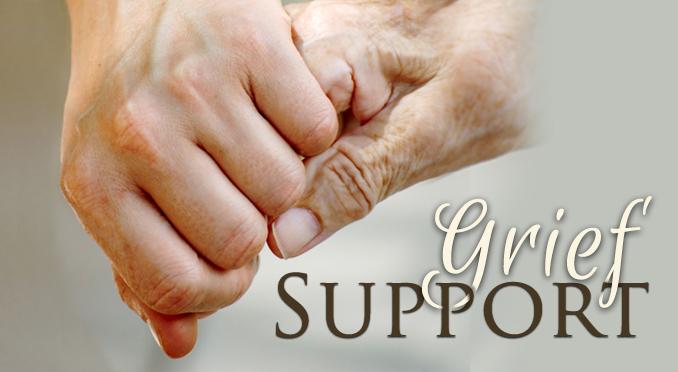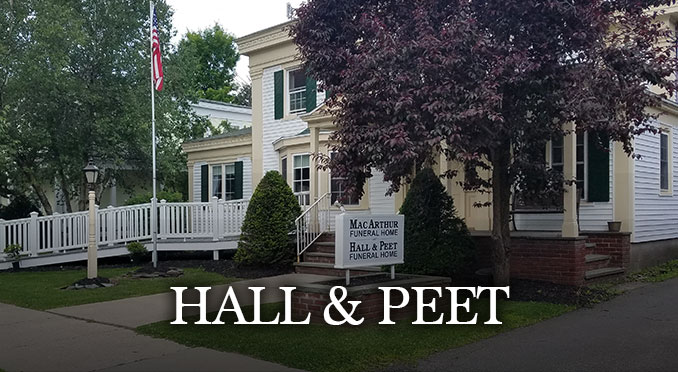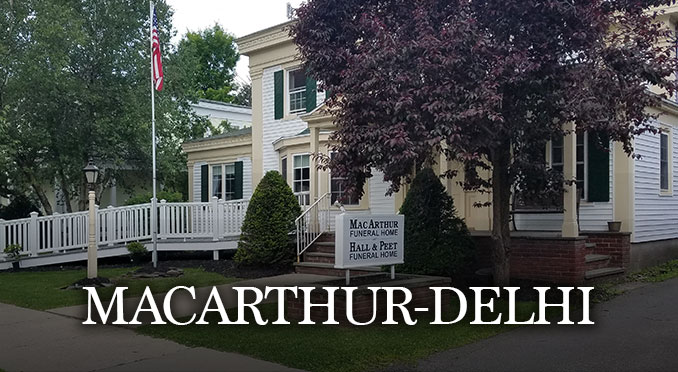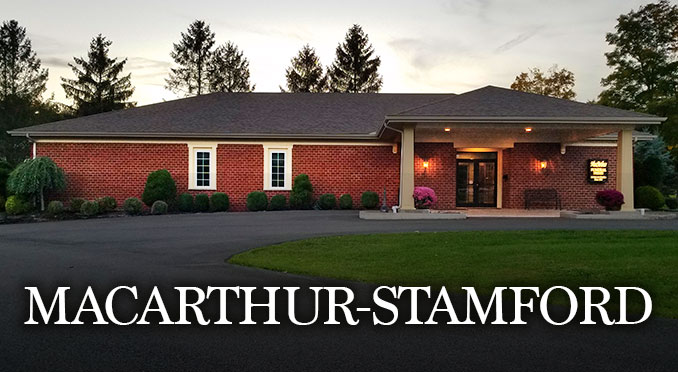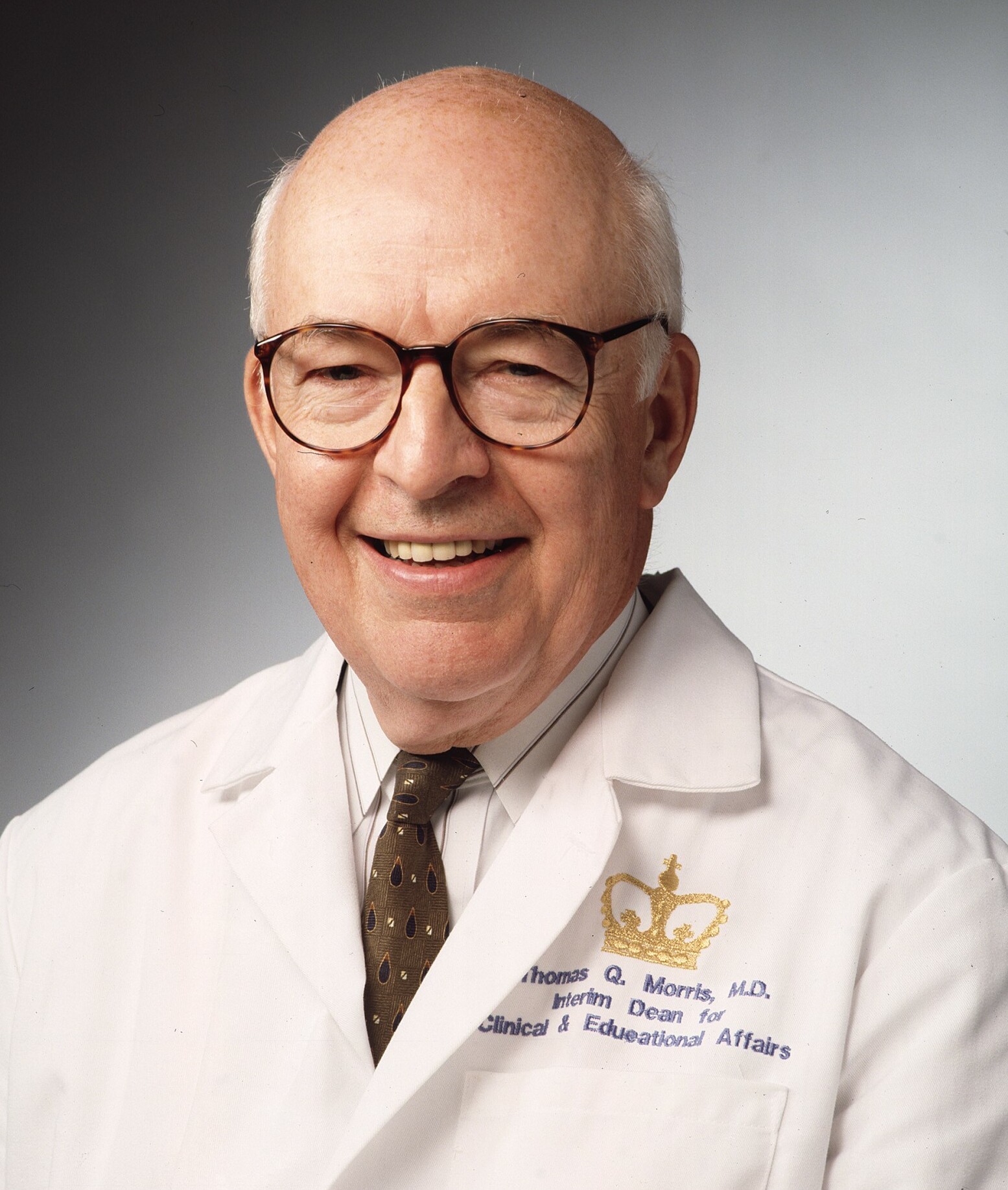
Obituary of Thomas Q. Morris, MD
Thomas Q. Morris, MD—“TQM” to many who worked with him—died Saturday, December 28, 2024 at Bassett Medical Center in Cooperstown, New York. He underwent surgery Oct. 1 on a glioblastoma that was discovered after a fall at his home in Delhi, New York. Dr. Morris was 91 years old.
Dr. Morris held multiple leadership appointments at Columbia’s medical school, now known as the Vagelos College of Physicians and Surgeons, and what is now NewYork-Presbyterian Hospital. He retired from Columbia in 2003 as Alumni Professor Emeritus of Clinical Medicine.
At Columbia he served as acting chair of the Department of Medicine, vice dean of the Faculties of Health Sciences and Medicine, associate dean of academic affairs, interim dean of clinical and educational affairs, vice president of health sciences, and alumni professor of clinical medicine. After serving as president and CEO of Presbyterian Hospital, now NewYork-Presbyterian Hospital, from 1985 to 1990, he served as vice president for programs at the New York Academy of Medicine for four years before returning to Columbia for administrative roles at the medical school.
Dr. Morris, who graduated magna cum laude in 1954 from the University of Notre Dame, received his MD degree from Columbia in 1958. He completed his residency at Bellevue Hospital, where he was selected as chief resident. After serving two years as a captain in the U.S. Air Force at a large military hospital base in Belleville, Illinois, he returned to Columbia for a fellowship then joined the Columbia faculty in 1964.
Dr. Morris was born Jan. 3, 1933, into a working class family in Yonkers, New York. The youngest of three children, Dr. Morris told a Columbia publication upon his retirement in 2003 about his early life: “My father didn’t finish high school because of family responsibilities, but both he and my mother, a pianist, instilled in us a tremendous work ethic. We were expected to work hard in all aspects of our lives, in our part-time jobs, and at school.”
Dr. Morris was interested in medicine early. “I was premed as a freshman,” he said in the Columbia interview. “I had the sense when applying to college that I would find in medicine a career that was interesting and challenging and fun. And I was right.”
His four-year term as acting chair of medicine (1978-82) coincided with the emergence of HIV and AIDS. “Suddenly, as if out of nowhere,” he said in the 2003 interview, “we had people showing up in the ER with high fevers, rapid weight loss, rashes. They were desperately ill, but we didn’t know what was making them sick.” As department head, Dr. Morris used “open, honest conversations” to help his residents deal with their concerns about caring for patients with a uniformly fatal disease caused by an unknown infectious agent.
“We met every morning to review each admission from the night before, to look at X-rays. Most HIV patients at that time came in with pneumocystis pneumonia,” Dr. Morris said. “We quickly went from not knowing what was going on to being able to see the infectious agent under the microscope and take appropriate precautions. We soon understood we were looking at a new disease that would be the biggest scourge of medicine for years to come.”
In addition to treating patients as an internist, Dr. Morris was committed to medical education. His influence reached beyond the medical center campus through his service to the Mary Imogene Bassett Hospital in Cooperstown, New York; the American University of Beirut in Lebanon; and nonprofit foundations. He was a visiting physician at Bellevue Hospital and Harlem Hospital and a visiting professor in Iran. An endowment was established to support an annual symposium in Dr. Morris’s name at Columbia to explore the future of medical education.
Dr. Morris played an important role in creating a new academic track for Columbia’s medical students, the Columbia-Bassett Program. He was chair of the Bassett Board of Trustees when the Cooperstown medical center and Columbia launched the program. The first class of 10 Columbia medical students began the program in 2012, and 10 students have enrolled every year since. The program combines science-based coursework in Manhattan with clinical education at Bassett. The longitudinal integrated curriculum allows students to follow a panel of patients for a full year across specialties. The students also learn the tools and principles of process improvement to find ways to improve medicine and medical education.
“Dr. Morris was the catalyst who worked strategically with both institutions to make the extraordinarily successful Columbia-Bassett student program possible,” says Lee Goldman, MD, who was dean of Columbia’s medical school when the program began. “He saw the mutual benefit: a larger commitment to rural/upstate opportunities for Columbia students and the energy and potential future faculty Bassett would realize from an increased teaching commitment.”
Dr. Morris became a member of the Board of Trustees at the American University of Beirut in 1985, chair of the board in 2005, and chairman emeritus in 2009. He received an honorary Doctorate of Humane Letters from AUB in 2009. He was introduced to AUB in 1982 as part of a New York state education department team sent to evaluate AUB’s accreditation, a process neglected for many years during Lebanon’s civil war. In an interview, Dr. Morris discussed his impressions during that visit: “We saw the hospital convert itself from relative peacetime function to a full-time war hospital, when it would receive 50 odd casualties a day after a bombing, sometimes many times a day. It was remarkable exposure to a resilient and enormously capable group of people serving at the hospital.” He also said he was impressed by the commitment of the AUB community to support the University.
In addition to serving as chair of the Board of Trustees at Bassett, he was chair of the New York Academy of Medicine board and former trustee of Presbyterian Hospital, the Gladys Brooks Foundation, the Clark Foundation, and the William J. Matheson Foundation, which he also served as president.
Dr. Morris is survived by a son, Thomas P. Morris; two daughters, Amy C. Morris Pickens and MaryAnne B. Morris; and two grandchildren. His wife, Jacqueline “Jackie” Ingram Morris, died in 2021. (married in 1959)
Calling Hours will be from 4PM-7PM on Friday January 3, 2025, at MacArthur Funeral Home Delhi, NY. A Funeral Mass will be held Saturday January 4, 2025, at 10am at St. Peters Church with Father Golding officiating. Burial to follow at Woodland Cemetery, Delhi.
Memorial contributions in lieu of flowers may be made to the University of Notre Dame. Please direct your gift to the Jackie and Tom Morris '54 Endowment for Excellence in memory of Tom Morris. Gifts may be made online at giving.nd.edu, by phone at 574-631-5150, or by mail: University of Notre Dame, Department of Development, 1100 Grace Hall, Notre Dame, IN 46556

